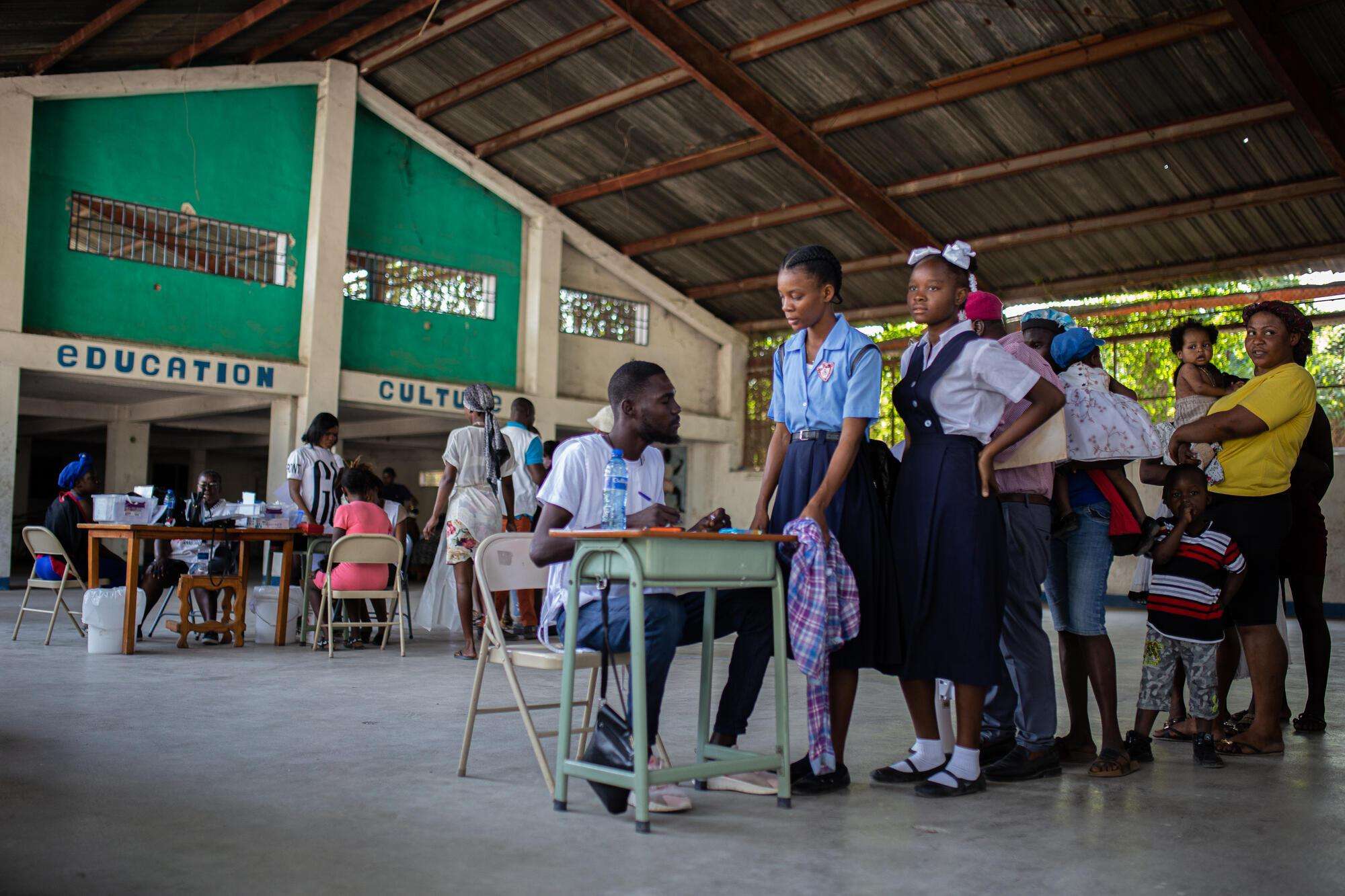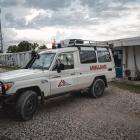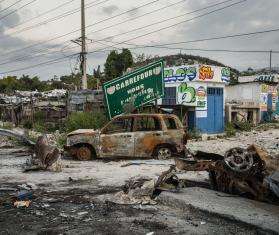However, our teams were not immune to the risks posed by the volatile security situation in the country. Critical incidents, which endangered our staff and resulted in the deaths of two of our patients, have forced us to suspend some of our activities. We ended our support to Raoul Pierre Louis Hospital in Carrefour in January when a wounded patient was removed by gunmen and shot dead. We temporarily closed our Cité Soleil hospital in February and April due to fighting in neighboring streets, and suspended activities at our Tabarre facility for almost two months after armed men stormed in and forcibly removed a patient in July.
In December, the Turgeau Emergency Center closed its doors indefinitely when a patient was taken from an ambulance and killed in the street.
Sexual and gender-based violence
Sexual and gender-based violence is a widespread issue in Haiti. The deepening socioeconomic crisis and high levels of armed violence have had a considerable impact on the psyche of entire communities, who have become isolated and more exposed to the risk of sexual aggression.
We ran two clinics, one in Port-au-Prince and one further north in Gonaïves, to provide survivors of sexual violence with specialist medical, psychological, and social care. A free telephone helpline has also increased access to care, offering victims remote psychological support and referrals to health centers. Our mobile clinics working in hard-to-reach neighborhoods include care for survivors of sexual violence in their services.
Maternal and neonatal health
The provision and accessibility of maternal health care is extremely limited in Haiti, contributing to the highest maternal and neonatal death rates in the western hemisphere (5.3 percent and 2.4 percent respectively). Our activities in the south of the country aim to respond to these pressing needs. In February, we reopened a hospital for maternal and neonatal health care in the town of Port-à-Piment, a formerly government-run facility that was damaged beyond repair in the 2021 earthquake. Our teams rebuilt and upgraded the hospital, which now offers surgery for patients with obstetric complications as well as pre- and neonatal care. However, as many other medical facilities in Sud department were never properly repaired, access to health care remains limited for pregnant women and newborns.










